Annual Meeting Speakers
 Alison Affinati, MD, PhD
Alison Affinati, MD, PhD
Assistant Professor, Office of Physician Scientist Education and Training, Director, University of Michigan
Alison Affinati, MD, PhD graduated from University of Chicago in 2007 with a BS in Biological Chemistry and attended the MSTP program at Northwestern. During her PhD training she worked with Dr. Joe Bass investigating the role of circadian regulation of the nutrient NAD+ in glucose and lipid metabolism. She then joined the PSTP in 2015 at University of Michigan and completed her internal medicine and endocrinology fellowship training. She conducted her post-doctoral work with Dr. Martin Myers studying how the brain controls glucose metabolism. She was promoted to Assistant Professor in the Division of Metabolism, Endocrinology and Diabetes (MEND) and started her lab in July 2022. Since then she has received recognition for her work from the American Society for Clinical Investigation as a recipient of the Young Physician Scientist Award, the Central Society for Clinical and Translational Research Early Career Development Award, named as the Kenneth Eisenberg Emerging Scholar by the Taubman Institute at University of Michigan and was awarded the Georgiana M Sanders Junior Faculty Endowment by the University of Michigan Department of Internal Medicine. Her research program focuses on understanding the mechanisms through which the hypothalamus regulates glucose homeostasis and body weight. In addition to her research, she is passionate about supporting the career development of physician scientists and is the Director of the Office of Physician Scientist Education and Training. She is a practicing adult endocrinology and sees patients with a focus on diabetes and obesity.
 Briseis Aschebrook-Kilfoy, PhD, MPH
Briseis Aschebrook-Kilfoy, PhD, MPH
Professor of Family Medicine/Public Health Sciences, The University of Chicago
The major focus of Dr. Aschebrook-Kilfoy's research is to elucidate the role of environmental, lifestyle, and genetic factors in the development of cancer and chronic disease. She received training in environmental, chronic disease, and cancer epidemiology, with specific training and expertise in key research areas to study the impact of the urban exposome on population and precision health. As a postdoctoral fellow at the National Cancer Institute in the Occupational and Environmental Epidemiology Branch, She led multiple projects addressing environmental exposures, genetic risk, and chronic disease. A major focus of her work was evaluating nitrate (from dietary and water sources), pesticides, and other persistent organic pollutant exposure on cancer risk. Dr. Aschebrook-Kilfoy has extensive training and experience conducting environmental exposure assessments using both traditional and molecular approaches. As an Associate Professor in the Department of Public Health Sciences at the University of Chicago, she has been developing epidemiologic resources and cohorts to study the impact of the environment on human health in Chicago and beyond as the Director of the Epidemiology Research and Recruitment Core and as a Co-Investigator on key Institute for Population and Precision Health (IPPH) projects including the Chicago Multiethnic Prevention and Surveillance Study, the All of Us Research Program and the NCI Connect Study. She is PI of the Nutrition Precision Health Study and the new NHLBI MOSAAIC Study. As a Co-investigator in the Chicago Center for Health and the Environment (CACHET) and Co-Director of the CACHET Integrated Health Sciences Facility Core (a NIEHS P30 center core), Dr. Aschebrook-Kilfoy has been doing extensive work on the integration of novel air pollution monitoring technologies into large population health studies from the South Side of Chicago to Bangladesh. She is also the contact mPI of a NIEHS funded R25 training program to promote EHS studies and careers by engaging underrepresented undergraduates in Chicago in EHS research (Up on EHS).
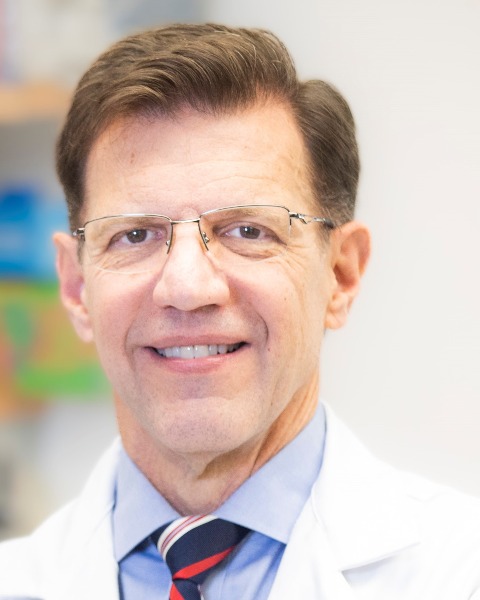 Timothy Blackwell, MD
Timothy Blackwell, MD
John G. Searle Professor, Chair, Department of Internal Medicine, University of Michigan
Dr. Timothy Blackwell obtained his medical degree from the University of Alabama School of Medicine, trained in Internal Medicine at Washington University in St. Louis, and completed a fellowship in Pulmonary and Critical Care Medicine at Vanderbilt University Medical Center in 1995. He served as a member of the faculty at Vanderbilt from 1995-2024, rising to the rank of Professor and leading the Division of Allergy, Pulmonary, and Critical Care Medicine beginning in 2007. He founded the Vanderbilt Lung Institute in 2020 and served as Physician-in-Chief until 2024, when he was appointed Chair for the Department of Internal Medicine and John G. Searle Professor of Internal Medicine at University of Michigan Medical School. He oversees the medical school’s largest department with 13 Divisions and more than 950 faculty.
Dr. Blackwell is an internationally recognized physician-scientist who has performed ground-breaking research in basic mechanisms of lung injury, repair, remodeling, and fibrosis for 3 decades. His work has improved understanding of lung diseases and conditions such as Acute Respiratory Distress Syndrome, Idiopathic Pulmonary Fibrosis, Chronic Obstructive Pulmonary Disease, lung cancer, and Bronchopulmonary Dysplasia. His research has resulted in over 320 peer-reviewed publications and continuous funding from the NIH and VA since 1998. He has been elected to ASCI, AAP, and AAAS.
In addition to his leadership in biomedical research, Dr. Blackwell is a prodigious mentor who has personally trained more than 40 pre-doctoral students, post-doctoral fellows, and junior faculty, including several emerging leaders in academic medicine. In addition, he has overseen the training of >100 clinical fellows in Pulmonary and Critical Care Medicine and Allergy and Immunology and directed a T-32 post-doctoral training program for >15 years.
 Debbie Buonomo
Debbie Buonomo
Medical Science Liaison, Verona Pharma
Debbie Buonomo has been a Medical Science Liaison with Verona Pharma since 2023, bringing over a decade of pharmacy and product development expertise. She completed her residency in ambulatory care within the Veterans Administration system. Prior to her current position, she served as a Director of Product Development for a national home infusion provider, leading strategic initiatives, heading research initiatives, and overseeing rare disease clinical programs. In her current role at Verona Pharma, Debbie collaborates with thought leaders, clinicians, and specialists to support therapies in the respiratory space.
 Rachel Caskey, MD, MPP
Rachel Caskey, MD, MPP
Professor of Medicine, University of Illinois Chicago
Dr. Caskey is a national leader in the field of maternal child health. She combines her clinical interest in women’s health with her public health interest in population health to develop a research platform focused on health care delivery through scalable behavior change interventions. She is a health services researcher focused on novel system-level changes to health care settings to improve outcomes for women and children; with an emphasis on improving access to care for postpartum women and reducing maternal morbidity and mortality. She is Principal Investigator on several federally funded grants.
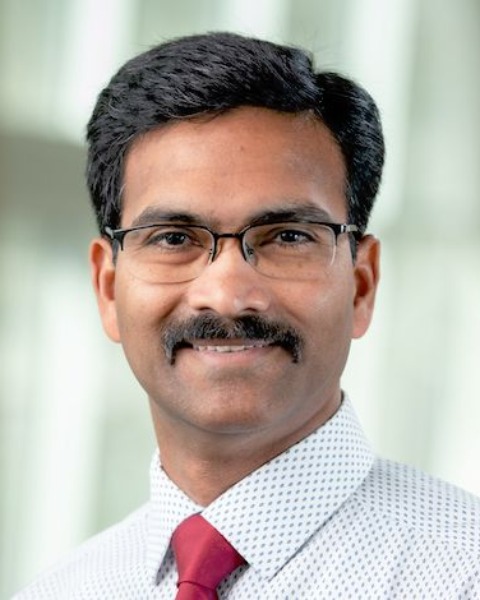 Babu Guda, PhD
Babu Guda, PhD
Professor, University of Nebraska Medical Center
Dr. Babu Guda, PhD., is a Professor in Genetics, Cell Biology and Anatomy, and Assistant Dean for Research Development at the College of Medicine, University of Nebraska Medical Center. He is also the founding director of the Center for Biomedical Informatics Research and Innovation at UNMC. Dr. Guda was trained in the interdisciplinary areas of molecular biology, computer science and computational biology, with over 25 years of research experience in bioinformatics. His current research projects are focused on developing novel computational methods and software for analyzing various types of ‘omics data including the next-generation sequencing data such as whole genome and Exome-seq, RNAseq, ATAC-seq, and Metagenomics. His group employs deep learning and large language models to integrate and interrogate high-dimensional datasets for classification and prediction purposes. His current reearch is in the areas of developing novel computational tools for genomic data analysis, drug discovery and precision medicine. Dr. Guda helped develop several graduate programs and taught graduate courses in Bioinformatics and mentored dozens of graduate students, postdocs and junior faculty in the bioinformatics field. He served on numerous grant review panels of NSF, NIH, DoD, and MRC, and published about 170 peer-reviewed research articles that cover a wide range of topics related to computational biology, cancer genomics, machine learning and genomic data science.
 Ajay K. Jain, MD, MHA
Ajay K. Jain, MD, MHA
Professor, Saint Louis University
Dr. Ajay Jain, MD, DNB, MHA is the Anthony Rejent Professor of Pediatrics with a dual appointment in the Department of Pharmacology and Physiology. He serves as the Chief of the Division of Pediatric Gastroenterology, Hepatology and Nutrition and Director of Pediatric Liver Transplantation at SSM Health Cardinal Glennon Children's Hospital, Saint Louis University. Dr. Jain is also the current President of the American Society for Parenteral and Enteral Nutrition. Dr. Jain’s contributions include pioneering work in the field of parenteral nutrition associated multisystem injury development of novel systems related to pathogenesis, diagnosis, and therapeutic approaches for appropriate nutritional delivery and rehabilitation. He is also credited with the development of unbiased discovery platforms and excellence in diagnostic and therapeutic testing of pediatric liver diseases and for pediatric obesity. His research is funded by the National Institutes of Health, foundations, and industry partners. Dr. is an NIH study section panelist and prominently recognized through over 75 high profile peer reviewed publications, patents, and multiple national and international presentations and awards, including the International Stanley J Dudrick Award, Recognizing Excellence in Nutrition. In addition, Dr. Jain delivers world class care to his patients with liver and gastrointestinal diseases, including those getting isolated and multiorgan transplants, short bowel syndrome, nutritional, metabolic and other GI disorders.
 David Kaelber, MD, PhD, MPH, FAAP, FACP, FACMI, FAMIA
David Kaelber, MD, PhD, MPH, FAAP, FACP, FACMI, FAMIA
Associate Professor, Case Western Reserve School of Medicine, Department of Population and Quantitative Health
David Kaelber, MD, PhD, MPH is a practicing internist and pediatrician and is the Chief Health Informatics Officer and Vice-President of Health Informatics and Patient Engagement Technologies of the MetroHealth System. He is also the founding Director of MetroHealth’s Center for Clinical Informatics Research and Education and the Center for Health Informatics and Patient Engagement and Fellowship Director of MetroHealth’s Clinical Informatics Fellowship, as well as being a professor of internal medicine, pediatrics, and population and quantitative health sciences at Case Western Reserve Univerisity.
Dr. Kaelber received his BSE in biomedical and electrical engineering from Duke University. He completed his MD and MS and PhD in biomedical engineering from Case Western Reserve University. He was a National Library of Medicine Medical Informatics Fellowship at the Center for Information Technology Leadership at Partners Healthcare and completed his MPH at the Harvard TH Chan School of Public Health.
His areas of interest and research include leveraging aggregated, deidentified electronic health record platforms, personal health records, electronic health records, clinical decision support, health information exchange, telehealth, the teaching of medical informatics to medical students, resident physicians and fellows, using electronic health records for chronic disease detection and management, and other areas of clinical informatics.
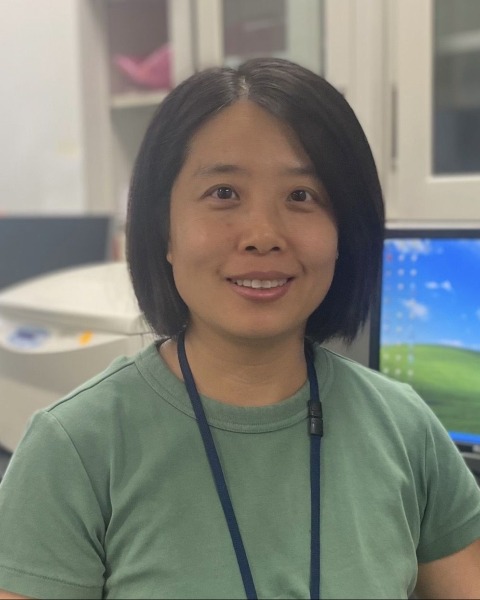 Jing Ma, MD, PhD
Jing Ma, MD, PhD
Assistant Research Professor of Medicine, Indiana University School of Medicine
Dr. Ma is an assistant research professor of medicine at the Indiana University School of Medicine. She received her doctoral studies at the NIAAA Intramural Laboratory of Liver Diseases, where she had the privilege of working under the guidance of Dr. Bin Gao, Senior Investigator and Chief of the Laboratory of Liver Diseases. Since Dr. Ma matriculated in her PhD training, her research areas focus on the basic mechanism of alcohol-induced liver injury. She worked energetically and reported the important role of pro-inflammatory mtDNA-enriched extracellular vesicles in mediating alcohol-induced liver injury, a work which was published in JCI Insight. Dr. Ma has an effective doctoral training, as illustrated by her scientific contributions and serving as a co-author in 4 high impact papers published in JCI, HEPATOLOGY, and Gut.
Dr. Ma joined the Division of Gastroenterology and Hepatology at Indiana University as a postdoctoral fellow in June 2020 under the mentorship of Dr. Suthat Liangpunsakul. By broadening her research areas to include both basic and translational studies while maintaining a focus on alcohol-induced liver injury, she is positioning herself to make even greater contributions to the field. She continues her productive career with co-authorship in 13 published papers in the span of 3 years since the inception of her postdoctoral training. These works are published in the Journal of Hepatology, HEPATOLOGY, and JCI Insight. While the overarching theme of her work is on alcohol-induced liver injury, she has refined the scope of her work through an independent project to focus on the role of neutrophils in ALD pathogenesis. She has discovered 2 distinct phenotypes of hepatic inflammatory cell infiltration in SAH patients, one with high intrahepatic neutrophils, low CD8 T cells, and vice versa. This work, in which she serves as the first author, has been published at JCI
 Sarah Messmer, MD
Sarah Messmer, MD
Assistant Professor of Medicine and Pediatrics, University of Illinois Chicago
Sarah Messmer, MD is an Assistant Professor of Medicine and Pediatrics at the University of Illinois Chicago (UIC). She provides primary care and low threshold substance use disorder treatment in partnership with a harm reduction and syringe service program run by the UIC School of Public Health, including a mobile van-based program. Her research focuses on implementation science in addiction medicine, with a goal to improve access to evidence-based addiction treatment.
 Ted Mikuls, MD, MSPH
Ted Mikuls, MD, MSPH
University of Nebraska Medical Center
Dr. Mikuls completed medical school and his internal medicine training at the University of Nebraska Medical Center (UNMC) in Omaha, Nebraska. He then completed his rheumatology fellowship training at the University of Alabama at Birmingham. Dr. Mikuls is currently the Stokes-Shackleford Professor of Rheumatology at the UNMC where he also serves as a staff physician and researcher at the VA Nebraska Western Iowa Health Care System.
Dr. Mikuls’ research interests are focused on disease epidemiology, pathogenesis and outcomes in rheumatoid arthritis and gout. He currently receives active research support from the NIH, VA, US Department of Defense, and industry; and is Director of the Professional Development Core for the NIGMS-funded Great Plains IDeA CTR. He founded and has directed the national VA Rheumatoid Arthritis Registry (VARA) since its inception. During his career, Dr. Mikuls has mentored more than 70 trainees including medical and graduate students, residents, fellows and early career faculty. He was recognized in 2024 with the American College of Rheumatology (ACR) Excellence in Investigative Mentoring Award.
Dr. Mikuls has held past leadership role with both the ACR and Rheumatology Research Foundation including previous service as Chair of both the ACR Practice Guidelines Subcommittee and the Foundation’s Scientific Advisory Council. He currently serves on the Foundation’s Board of Directors.
 Elaine Morrato, DrPH, MPH, FISPE, CPH
Elaine Morrato, DrPH, MPH, FISPE, CPH
Loyola University Chicago
Dr, Morrato is professor and founding Dean of the Parkinson School of Health Sciences and Public Health at Loyola University of Chicago, USA. A Fellow in the International Society for Pharmacoepidemiology and board-certified in public health, her research aims to accelerate the translation of health innovation into practice, with an emphasis on drug safety. Previously, as a project manager in Procter & Gamble’s global healthcare division, she led teams to launch new drugs and indications in North America and Europe – which informs her implementation research and practice. Dr. Morrato also maintains an active research portfolio funded by NIH to advance clinical and translational science in the U.S. and directs Loyola Chicago's particiption in the multi-instutional Institute for Translational Medicine led by the University of Chicago.
 Marcos Munoz, PhD
Marcos Munoz, PhD
Assistant Professor, University of Illinois Chicago
My name is Marcos Munoz, and I'm transitioning to Assistant Professor at the University of Illinois Chicago. My research trajectory, spanning molecular immunology in Argentina, metabolic profiling at UIC, and current neuroendocrinology studies under Dr. Pingwen Xu, has provided me with a holistic understanding of metabolic disorders. This foundation has culminated in the recent award of both an NIH K01 and an AHA Career Development Award for my work on fiber supplementation and hypothalamic inflammation. With these prestigious awards and the support of my mentors, I am poised to establish an independent academic career focused on developing impactful therapeutic interventions for metabolic diseases
 Christopher Olopade, MD, MPH
Christopher Olopade, MD, MPH
Professor of Family Medicine, Director, International Programs, The University of Chicago Medical Center
Dr. Sola Olopade is Professor of Medicine and Family Medicine and Associate Dean for Academic Affairs in the Biological Sciences Division and the Pritzker School of Medicine at the University of Chicago. He joined our faculty in 2009 to provide leadership in the development of a Global Health program, which has been successful and expanded from a Department of Medicine-based program to a University-wide program. An environmental scientist, Dr. Olopade early recognized the multiple potential health risks of exposure to household air pollution (HAP), an underrecognized global health issue. His scientific research in Nigeria from 2012 to 2015 was the first to explore the potential health benefits of transitioning pregnant women from cooking with polluting fuels to clean fuels. He discovered that more mothers in the intervention group who cooked with cleaner fuels had better birth outcomes. He followed this observation with a study on building a consumer market for ethanol-methanol cooking fuel in Lagos Nigeria. With several RO1 funding from the U.S. National Institutes of Health (NIH), he is now extending this research to study how HAP exposure affects child development and also how to use an implementation science strategy approach to encourage and promote the adoption of clean cooking technologies. Locally, in partnership with a community in an environmental justice area on the South side of Chicago, he is investigating the impact of exposure to air pollution on asthma control in children. In this project, his team has deployed low cost exposure monitors in a hyperlocal distribution in strategic locations ranging from porches of personal homes, near playgrounds and public areas where children play to capture ambient exposure levels and relate to asthma control trends. He remains focused on his research investigating the genetic basis for asthma in people of African ancestry. He has published over 100 peer-reviewed publications. Dr. Olopade is also devoted to educating and training young people, particularly focusing on helping trainees develop strong research skills and a firm grasp of the ethical principles that ground sound medical and research practice. He has directed an R25 funded program focused on diversifying biomedical science workforce for about a decade with excellent outcomes. Overall, roughly two-thirds of his R25 participants go on to receive a doctoral degree in a biomedical field, either an MD or PhD, or are an MD/PhD. In addition, about 17% are working primarily in research or research-related careers, including at the National Institutes of Health and the U.S. Department of Veterans Affairs, and in biotechnology, academia, and public health. In all his efforts in the realms of education, research, and community service, Dr. Olopade has worked tirelessly to mentor early career investigators, provide opportunity for those underrepresented in science towards developing human capacity for self-determination among vulnerable populations.
 Andrea A. Pappalardo, MD
Andrea A. Pappalardo, MD
Associate Professor of Medicine and Pediatrics, University of Illinois Chicago
Andrea A. Pappalardo, MD is an Associate Professor of Medicine and Pediatrics with indefinite tenure at the University of Illinois Chicago. She is board certified in three specialties: internal medicine, pediatrics and allergy/immunology and serves as the Allergy Service Director.
Dr. Pappalardo’s research focuses on school and community-engaged implementation science-driven interventions to reduce health disparities in asthma and food allergy. Her work in stock inhaler legislation and programming is appreciated throughout Chicago, across Illinois, and nationally. She recently completed her K12 project to assess school-based asthma management practices in Chicago Public Schools and pilot a stock inhalers program in select Chicago schools with demonstrated high asthma burden. This program was able to quickly upscale with the State of Illinois’ funding and creation of RESCUE-IL, with now all Chicago Public Schools implementing stock inhaler programming Winter 2024.
She started her National Institutes of Health K23 Career Development Award in August 2024 through the National Heart Blood and Lung Institute, where she is improving medication access in areas, such as rural Illinois school districts, where the RESCUE-IL program has not yet reached. Additionally, she along with her colleagues at University of Chicago Medical Center are evaluating the impact of stock inhaler policy implementation of the RESCUE-IL program statewide. She also works on allergist-immunologist and epinephrine access in community settings such as Chicago, and nationally with the Food Allergy Research and Education to improve food allergy prevention and outcomes within historically marginalized communities.
Dr. Pappalardo melds system-level thinking with her analytic skills gained in research and clinical expertise to create innovative solutions to healthcare system problems using community-engaged implementation science methodologies.
 Vinayak Prasad, MD, MPH
Vinayak Prasad, MD, MPH
Professor, Epidemiology & Biostatistics, University of California, San Francisco, School of Medicine
Vinay Prasad MD MPH is a hematologist-oncologist and Professor in the Department of Epidemiology and Biostatistics at the University of California San Francisco. He runs the VKPrasad lab at UCSF, which studies cancer drugs, health policy, clinical trials and better decision-making. He is author of over 500 academic articles and the books "Ending Medical Reversal" and "Malignant". He hosts the oncology podcast Plenary Session, the general medicine podcast The VPZD Show, is active on Substack, and runs a YouTube Channel VinayPrasadMDMPH. He runs The Drug Development Letter, a must read for industry insights. He tweets @VPrasadMDMPH.
 Davide Scozzi, MD, PhD
Davide Scozzi, MD, PhD
Assistant Professor, Norton Thoracic Institute at the St. Joseph`s Hospital and Medical Center
Dr. Scozzi is a pulmonary immunologist who specializes in studying the innate immune response to lung transplantation. Dr. Scozzi earned his Medical and PhD degrees in Experimental Medicine from La Sapienza, University of Rome, Italy. He completed his Pulmonary and Critical Care Medicine fellowship at University Hospital St. Andrea in Rome and his Postdoctoral Research fellowship in the Department of Surgery at Washington University in St. Louis, (MO).
Dr. Scozzi is currently an independent investigator at the Norton Thoracic Institute, St. Joseph's Hospital and Medical Center, and an Assistant Professor at the Department of Biomedical Sciences at the Creighton University of Medicine in Phoenix, (AZ).
Dr. Scozzi's translational research focuses on understanding how innate immune cells, particularly neutrophils, contribute to the ischemia-reperfusion injury that causes primary graft dysfunction after lung transplantation. Dr. Scozzi's laboratory aims to develop innovative neutrophil-targeting strategies for improving lung graft function and survival.
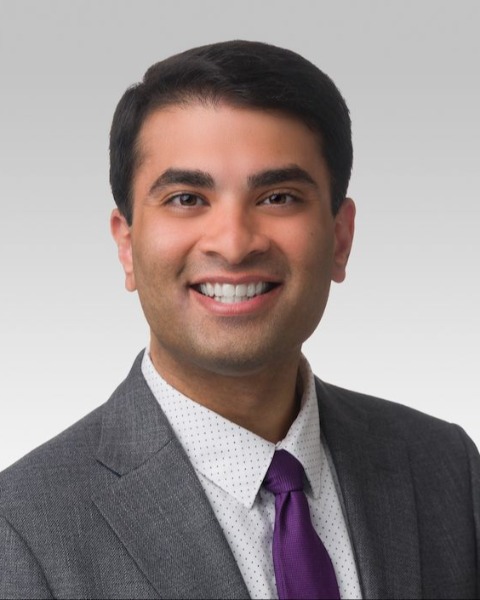 Nilay Shah, MD, MPH
Nilay Shah, MD, MPH
Assistant Professor, Northwestern University Feinberg School of Medicine
Nilay Shah, MD, MPH is a physician-scientist, Assistant Professor of Cardiology and Preventive Medicine, and general and preventive cardiologist in the Bluhm Cardiovascular Institute, at Northwestern University Feinberg School of Medicine. His research focuses on understanding cardiometabolic health transitions and the development of cardiovascular diseases across the life course, working toward developing and implementing evidence-based cardiovascular disease primordial prevention. He particularly seeks to adapt interventions to address disparities in CVD experienced by populations that are disproportionately affected, including Asian Americans and specifically South Asian Americans, with a goal to equitably prevent CVD for all.
 Scott Soleimanpour, MD
Scott Soleimanpour, MD
Associate Professor, Director, Michigan Diabetes Research Center, University of Michigan
Scott Soleimanpour, MD is the Larry D. Soderquist Professor of Diabetes Research and Associate Professor of Internal Medicine and Molecular and Integrative Physiology at the University of Michigan and serves as Director of the Michigan Diabetes Research Center. Diagnosed with type 1 diabetes (T1D) in 1986, Dr. Soleimanpour is deeply invested in basic research focused on the genetic causes of beta cell failure in both T1D and type 2 diabetes (T2D). Dr. Soleimanpour attended Kent State University and the Northeast Ohio Medical University as part of a combined B.S./M.D. program. During his pre-doctoral and post-doctoral research training, Dr. Soleimanpour completed diabetes research fellowships in the Vanderbilt University/NIDDK Medical Scholars program, the Howard Hughes Medical Institute-National Institutes of Health (HHMI-NIH) Research Scholars program, and the William Osler Society of Fellows at the University of Pennsylvania before joining the faculty at Penn and then moving to the University of Michigan in 2014. Among Dr. Soleimanpour’s key research contributions include studies focused on islet cell transplantation and mitochondrial quality control, including seminal studies focused on control of pancreatic beta cell function by mitophagy. He has received awards and honors from the American Diabetes Association, Juvenile Diabetes Research Foundation, the American Society of Clinical Investigation, the Central Society for Clinical and Translational Research, the Alpha Omega Alpha National Medical Honors Society, and The Endocrine Society. The Soleimanpour Lab has pioneered the study of mitochondrial quality control in diabetes pathophysiology, and his lab continues to focus on how defects in mitochondrial quality control lead to metabolic dysfunction in both T1D and T2D.
 Ram Kumar Subramanyan, MD, PhD, FACS
Ram Kumar Subramanyan, MD, PhD, FACS
Chief, Pediatric Cardiothoracic Surgery, Children's Nebraska/University Nebraska Medical Center
Ram Kumar Subramanyan, MD, PhD, FACS is a pediatric cardiothoracic surgeon-scientist. After finishing medical school in India, he completed his General Surgery training at the University of Southern California (“USC”) under Tom R. DeMeester, MD. He subsequently trained in Thoracic Surgery at USC and Congenital Cardiac Surgery at Children’s Hospital Los Angeles, under Vaughn A. Starnes, MD. He also has a PhD from USC, studying membrane protein biology and cell-cell interaction.
Dr. Subramanyan is currently the Chief of Pediatric Cardiothoracic Surgery at Children’s Hospital and Medical Center, Omaha and Professor of Surgery at University of Nebraska Medical Center. In addition to practicing the full spectrum of pediatric cardiothoracic surgery, he runs an extramurally funded research lab that studies cardiac outflow track development and cardiomyocyte biology. He participates in robust translational research initiatives, including being the site lead on regenerative therapy clinical trials for children with single right ventricle heart disease. Dr. Subramanyan has published over 100 peer-reviewed publications, authored several textbook chapters, and has delivered many invited lectures and presentations. He is the editor of the congenital section of the Seminars in Thoracic and Cardiovascular Surgery and is on the editorial board of three other major surgical journals. He has served on the study sections of various funding agencies, including the NIH and American Heart Association and currently serves as Chair of the Society of Thoracic Surgeons Congenital Heart Surgery Database and the Vice-Chair of Council on Research and Quality. He is also a member of the executive council of the Western Thoracic Surgical Association and participates in several committees in national organizations.
 Themis Thoudam, PhD
Themis Thoudam, PhD
Division of Gastroenterology and Hepatology, Indiana University School of Medicine
Dr. Themis Thoudam is a postdoctoral fellow at the Indiana University School of Medicine, where his research focuses on mitochondrial dysfunction in the progression of alcohol-associated liver disease (ALD). He aims to identify the key factors driving mitochondrial impairment and explore potential therapeutic targets. Dr. Thoudam has investigated the role of pyruvate dehydrogenase kinase 4 (PDK4) in regulating mitochondrial dynamics and ER-mitochondrial crosstalk, highlighting its involvement in alcohol-induced liver injury and obesity-related skeletal muscle insulin resistance. Through his work, Dr. Thoudam is dedicated to contributing to the development of targeted therapies for alcohol-associated liver diseases and metabolic disorders.
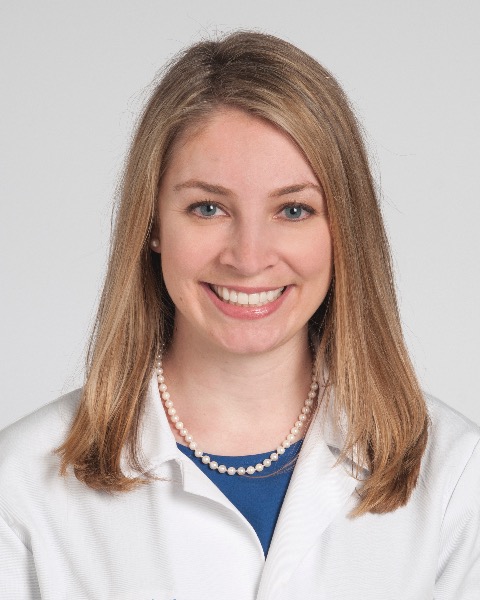 Nicole Welch, MD
Nicole Welch, MD
Assistant Professor of Medicine, Cleveland Clinic Lerner College of Medicine
Dr. Welch is a board certified gastroenterologist and transplant hepatologist who completed her clinical training in gastroenterology, hepatology and nutrition at the Cleveland Clinic. She subsequently joined as a faculty in the Department of Gastroenterology and Hepatology in the Hepatology section at the Cleveland Clinic and is currently an assistant professor in the Cleveland Clinic Lerner College of Medicine at CWRU. She has a joint appointment in the Inflammation and Immunity Departent of the Lerner Research Institute. Dr. Welch has a long standing interest in the management of acute and chronic liver diseases and has published both translational and clinical studies from her undergraduate education, medical school, residency and fellowship.
Upon completion of her clinical fellowship, Dr. Welch worked as a T32 fellow and identified that the rate of skeletal muscle loss was dependent on the etiology of liver disease and is a better predictor of clinical outcomes including decompensation and death. Dr. Welch continues to work on the role of hypoia inducible factor and alcohol in muscle loss in chronic liver disease.
Her translational expertise is in the field of sarcopenia in liver disease where she has worked with a comprehensive array of models including cellular systems, rodent models, and human patients with liver disease. She is also trained in the use of bioinformatics specifically, integration of unbiased data including assay for transposon accessible chromatin sequencing, RNA sequencing, proteomics and phosphoproteomics and metabolomics.

